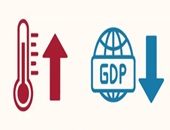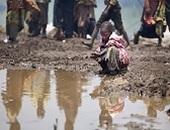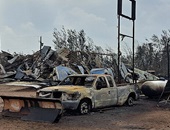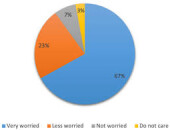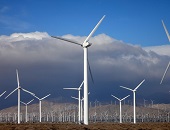Investing? Climate Matters
How will climate change affect investment decisions, going forward? Are investment professionals well informed on climate risk and transition risk? “Around the world, nations are committing to net-zero emissions targets of greenhouse gases,” said Richard MacGillivray, Senior Director at CFA Institute. “What are the implications of these commitments for the value and performance of companies in the real economy?” The 2024 Global Risks Report tabled by the World Economic Forum (WEF) polled risk managers on the biggest global threat to sustainability. Over the next two years, respondents said the top risk is misinformation and disinformation. However, over the next ten […]
Resilience and Development
For developing countries, how will climate change affect the progress of their economic development? Will these countries be able to use available opportunities through institutions such as the World Bank to adapt to changing conditions and improve people’s lives? “Development and resilience are mutually reinforcing,” said Stéphane Hallegatte, Senior Climate Change Adviser at the World Bank. “Development contributes to resilience, and resilience is crucial for safeguarding gains from increasingly frequent crises.” He was speaking at a webinar on September 5, 2024, on economic development in a changing climate. This was part of the series of talks sponsored by the Federal Reserve Bank […]
State of Wildfires
The potential for burning grows every month under climate change, as drought conditions increase in frequency and intensity. The dangers change unevenly, country by country and region by region. Ultimately, the operational risk of wildfires adds to country risk. But how bad is the current situation? Has anyone tried to benchmark, or systematically quantify, the events and the damages? An effort to benchmark the state of destruction has begun in a climate centre in England, the Tyndall Centre for Climate Change Research at the University of East Anglia in Britain. The findings of an expert panel were released in the inaugural report, “State of Wildfires 2023–2024,” […]
Immigration Spike Eases Labor Shortage
For accurate predictions, models depend on accurate input data. For this reason, the U.S. Congressional Budget Office (CBO) routinely updates demographic information about the United States. Recently, errors on the orders of millions of people have come to light. Why are the estimates of the number of immigrants off base, and what are the effects on economic planning? “The CBO now projects that 3.3 million people on net immigrated to the United States in both 2023 and 2024,” according to an economic letter released by the Federal Reserve Bank of San Francisco (FRBSF) on July 15, 2024. “These estimates are […]
How to Measure Nature Risk?
In June 2024, Dawn Lalonde, a beekeeper in northern Ontario noticed a sudden die-off of about a million bees. The bee die-off affects much more than the amount of honey she can collect from her hives. Without bees, local crops and orchards do not get adequately pollinated, leading to lower yields. This is but one recent example of a type of risk coming into new prominence in business and economics: nature risk. Nature risk, the loss of things in the world not created or domesticated by humans, affects businesses and economies directly, by impacting operations such as lack of pollination, […]
Special Report
What is it like being a climate scientist in these days of global warming? Do climate scientists truly believe the global temperature rise can be halted at 1.5 degrees C? The Guardian Weekly posted a special report on climate change May 17, 2024. To answer these questions, take a read. Author Damian Carrington surveyed 380 climate scientists and found sobering results. ♠️ Click here to go to the Guardian page with the Special Report.
The Cost of Sustainability
It seems not a newscast goes by without mention of carbon taxes, or emissions trading, or severe weather events. As wildfire season ramps up, the benefits to switching to renewable energy are apparent. Gradually—some might say too gradually—climate policy (both to mitigate and adapt to changing conditions) is being implemented. New measures chiefly target industry sectors that have the greatest carbon emissions, such as fossil fuels, agriculture, and fashion. But how does sustainability affect the cost of capital, in other words, the minimum rate of return a company must earn before generating value? “There’s plentiful research on the benefits,” said […]
Geopolitical Risks
Many conflicts and potential conflicts disturb various parts of the world in the post-pandemic era. For those who must manage various sources of risk in a portfolio, what are the biggest threats on the horizon? Is there a common thread among several sources of conflict? The Global Association of Risk Professionals (GARP) provides a series of podcasts featuring specialists discussing their area of risk and we at TextMedic enjoy listening in. This is the first podcast we have summarized in our blog, and for starters we delve into country risk. On April 14, 2024, Daniel Wagner, CEO of Country Risk […]
On the Move
“Humanity is on the precipice of a great climate migration, and Americans will not be spared,” says Abrahm Lustgarten, the author of a new book released March 26, 2024. “Tens of millions of people are likely to be driven from the places they call home. Poorer communities will be left behind, while growth will surge in the cities and regions most attractive to climate refugees. America will be changed utterly.” On the Move: The Overheating Earth and the Uprooting of America by Abrahm Lustgarten is a new book published by Farrar, Straus & Giroux. It is a vivid, journalistic account […]
Decarb Economics 101
To mitigate the consequences of climate change, the world requires international coordination. In 2015, the Paris Agreement was signed by 195 nations. Its long-term temperature goal is to keep the rise in mean global temperature to well below 2°C (3.6 °F) above pre-industrial levels, and preferably limit the increase to 1.5 °C (2.7 °F), which would reduce the worst effects of climate change. Many countries are developing policies to get themselves on a path toward achieving the agreed-upon 1.5 °C goal. Although present progress may seem piecemeal, in the words of a Chinese proverb, “A great journey begins with a single step.” The figure below […]

